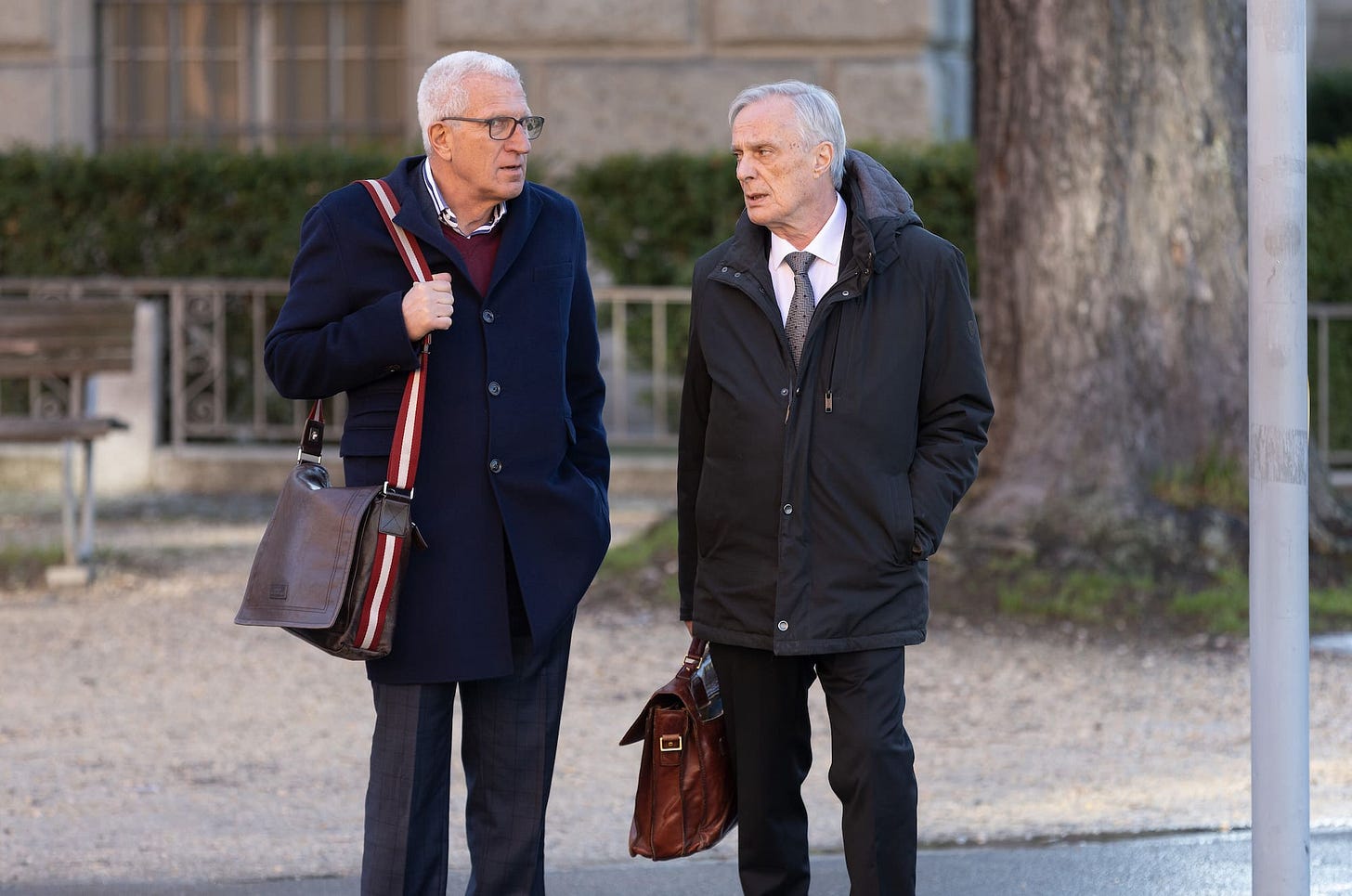Dear Insider,
To read the headlines is sometimes to fall into depression.
After last week’s abrupt departure of Credit Suisse Chairman Antonio Horta-Osorio, this week brings the long-awaited (or dreaded) start of Pierin Vinzenz’s trial for fraud.
The men at the top seem to be no good at all…
In such circumstances, it might appear that all is bad and hopeless. But this is not the case. There is yet a flame of hope…
While bad apples pop up (too often…), the rest of Switzerland continues to run more or less smoothly.
This weekend, for the 37th year in a row, the frozen lake of St. Moritz will be the sight of its world-famous snow polo tournament. Swiss Federal Councillor Alan Berset has indicated that an end to covid-certificates may be in sight. World-class footballers like Robert Lewandowski (and not only…) continue to flock to the Swiss ski slopes.
In the end, everything is not so bad after all…
Switzerland keeps on ticking.
And so it begins…
Perhaps the largest and most closely followed economic criminal case in Switzerland got underway this week - with former Raiffeisen Switzerland CEO (1999-2015) Pierin Vinzenz standing trial on a range of charges.
The ex-banker faces accusations of fraud, embezzlement, and bribery stemming from his time as CEO at the bank.
Vinzenz is accused of making money for himself by investing in subsidiaries of Raiffeisen.
His close acquaintance Beat Stocker also faces charges, along with 7 other persons.
The other man in the limelight
If Pierin Vinzenz has any hope of walking away from the charges which face him, it is thanks to Lorenz Erni, his attorney.
Known internationally for having defended film director Roman Polański after he was arrested in Switzerland in 2009 as well as ex-FIFA boss Sepp Blatter - the partner of Eschmann & Erni will have his hands full.
Building belt-tightening
The Swiss National Bank feels that the covid-crisis is close to over. At least this is one conclusion that can be drawn from its recent decision to reinstate the so-called anti-cyclical crisis capital buffer for Swiss banks.
The central bank will require banks to hold an additional 2.5% of its own capital as a reserve against the real estate loans they write.
The Swiss financial regulator FINMA welcomed the move, coming as it does during a time of uncertain economic developments worldwide.
The buffer, which was deactivated at the outbreak of the pandemic, will be reinstated as of September 2022.
Lowering the target (age)
UBS has made its biggest acquisition in some time with the $1.4 billion purchase of digital wealth management platform Wealthfront.
The move to buy Wealthfront is the first major purchase of new CEO Ralph Hamers’s tenure at the Swiss bank.
Wealthfront manages more than $27 billion in assets - a mere trickle compared to its new owner.
Hamers and UBS have made it clear that they wish to target younger Gen Z investors in the US market. A thriving digital platform like Wealthfront gives them a jump on that goal.
Still shaky
Over the first four weeks of the year, Switzerland’s economy has continued to perform at an ‘above-average’ pace according to statistics released as part of the KOF barometer.
With an uptick of 0.02, the KOF barometer reached 107.8 - approximately 3 points above projections.
Consumer prices continue to rise, though at a month-to-month pace of less than 1%.
Further trends towards economic growth remain heavily dependent on the development of the Omicron covid variant in the country.
(Not) so fast
One industry, besides pharmaceuticals, which has not seen a slow down during the pandemic is the Swiss watch industry. Record sales show that the industry keeps on ticking.
In 2021, Swiss watch manufacturers made up a sizeable percentage of the record CHF 260 billion in nationwide exports.
Much of the growth in watch sales came from online shops.
Over the past 20 years, Swiss watch exports have more than doubled, with a record CHF 22.3 billion in sales beyond its borders.
Swatch Group, the largest manufacturer of watches in Switzerland, recovered from down year in 2020, with CHF 774 million in profit in 2021.
Research on the chopping block
Long-standing differences and stalled negotiations between Switzerland and the EU do threaten only economic consequences - they may also have detrimental consequences for Swiss researchers and universities.
The European Research Council recently announced that Swiss researchers who have received EU money in the form of grants will not be allowed to do their work in Switzerland.
Horizon Europe, which recently granted funding to 11 Swiss researchers, has sought to force Swiss scientists to relocate to an EU country.
According to information from leading Swiss university ETH Zürich, the funding which the researchers forfeit from the European Union, will be covered by the Swiss government.
ETH Zürich - the world-class Swiss university was (for a time) host to Albert Einstein.
Open and overexposed
Cybersecurity continues to be an area of concern as covid has accelerated the creation of data in the digital sphere. Now a data leak in the Swiss railway system SBB has exposed the information of passengers who use the Swiss Pass system.
Approximately 500’000 passengers on SBB were affected, with names, dates of birth, and routes being leaked.
According to a statement from SBB, the ‘weak spot’ in its systems has been patched.
Despite its reputation for security, Switzerland faces many of the same challenges as other highly-developed and digitized countries. A vaccination information site was recently exposed to be less than secure by media portal Republik.ch.






